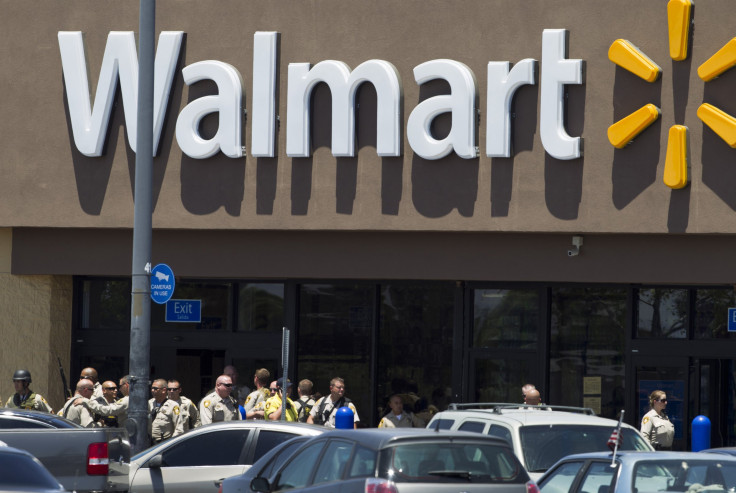Walmart To Offer Low-Cost Checking Accounts In Venture With Green Dot

Walmart is joining with Green Dot, an issuer of prepaid MasterCard and Visa credit cards, to offer checking accounts to anyone over 18 who has passed an identification check, Daniel Eckert, senior vice president at Walmart, announced Tuesday. The accounts will be made available by the end of October.
The checking accounts will not have fees for overdrafts or bounced checks. No minimum account balance is required either – a common stipulation for traditional banking accounts. The service is meant to be a low-cost alternative to basic checking accounts at banks that can charge at least $34 for overdrafts, the New York Times reports. In comparison, the new Green Dot accounts will cost $8.95 a month, provided there are less than $500 a month in direct deposits.
This isn’t the first financial service Walmart has offered. Besides buying all manner of consumer goods, shoppers already can cash checks, pay bills and reload prepaid debit card at its stores. In April, the retailer announced a money transfer service where customers can send money to and from any of its 4,000 stores in the U.S. and Puerto Rico, Forbes reports.
Walmart’s further advance into financial services comes after a report by the Federal Deposit Insurance Corporation in May revealed that one in four U.S. households does not have a checking or savings account with a bank or credit union. Many of them are low-income or in areas with high poverty rates, according to the U.S. Census Bureau. Walmart's core customer base has a household income of $30,000 to $60,000, Reuters reports.
Lately, the retail chain has been threatened by the growth of even cheaper retailers such as Dollar Tree and Family Dollar, according to the market research company, NPD Group. The new Green Dot checking accounts might help Walmart distinguish itself from the low-price retail competition.
“Their core consumer, the lower-end consumer, is faring disproportionately poorly in the overall economy,” Faye Landes, retail analyst at Cowen, an investment management group, told the New York Times. “So anything they can do to get them back from the dollar stores and back in their own stores makes total sense.”
© Copyright IBTimes 2024. All rights reserved.






















